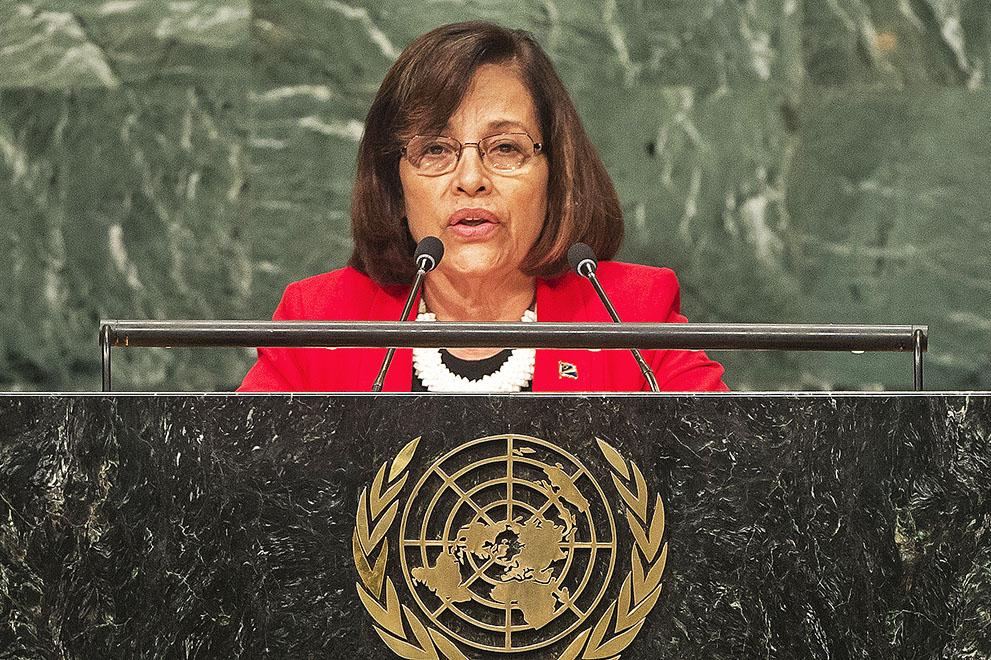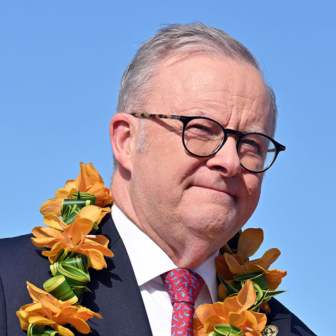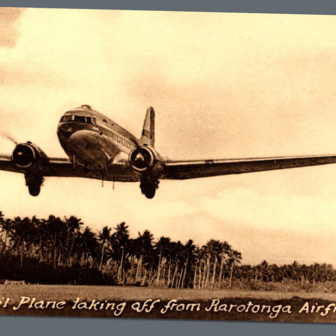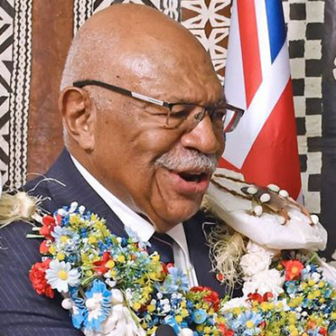Surveys of democracy in the Pacific Islands usually focus on the more troubled cases, particularly Fiji and western Melanesia, and ignore developments in the smaller island states. Instability, corruption, and authoritarian tendencies are frequently highlighted, but less attention is devoted to the more stable polities. Many observers focus on the illiberal qualities of Pacific democracy, contrasting these with imagined and idealised qualities of Western democracy, and give little attention to regular alternations of government in Oceania’s micro-states.
Six of the independent Pacific Island countries went to the polls in 2016, and in three cases incumbent governments lost and were peacefully replaced by opposition constellations. In Samoa, Palau and Nauru, the incumbents were successful; in Kiribati, the Republic of the Marshall Islands and Vanuatu, opposition groups took office. Kiribati president Anote Tong reached his three-term limit, and although his Boutokaan te Koaua party obtained twenty-six of the forty-six seats at the January election, it was the opposition candidate Taaneti Mamau who won the subsequent presidential contest in a nationwide vote. That outcome realised a potential tension in the Kiribati constitutional arrangements: the risk of gridlocked government owing to the fact that the president lacks a parliamentary majority. Assisted by the fact that twenty-two MPs were newcomers, parliament regrouped around a newly formed post-election party, the Tobwan Kiribati.
Unlike Kiribati, the Marshall Islands’ president is selected by parliament. In November 2015 polls, fourteen of the thirty-three seats in the Nitijela(parliament) changed hands and around half the cabinet of president Christopher Loeak lost their seats. By a one-vote margin, the Nitijela opted for Casten Nemra, a president backed by the Kwajalein chiefs, but rapidly shifting coalition fortunes meant he lost a vote of confidence only three weeks later. In his place, senators realigned behind Hilda Heine, who became the country’s first female president in late January. Such an outcome so soon after a general election would have been unlikely in Kiribati because its constitution requires the dissolution of parliament after a successful vote of no confidence.
In Vanuatu, meanwhile, the prime minister heads the government but among the president’s few powers is the authority to dissolve parliament. In December 2015, president Baldwin Lonsdale triggered a dissolution after half of the incumbent government’s ministers were sent to prison for corruption. The snap election, held in January, brought the opposition into office. With twenty-two changes of government since 1991, Vanuatu has more experience of switches from government to opposition than any other country in the Pacific Islands.
Elsewhere, elections brought greater continuity. In Palau, president Tommy Remengesau was re-elected with a narrow majority in November, but incumbents won by a landslide in Nauru and Samoa. In Samoa, Tuilaepa Sailele Malielegaoi’s Human Rights Protection Party obtained thirty-five of the fifty parliamentary seats in March; twelve independents also joined the government, leaving the opposition Tautua Samoa Party with only three seats, less than the eight required for recognition as a political party, and encouraging objections that Samoa is becoming a one-party state. Tuilaepa’s party has now been in office since 1982, with one short break when it was forced into a coalition government.
Samoa’s 2016 election was the first under a new “best loser” system, designed to ensure women acquire at least 10 per cent of the seats in parliament. Since four women were elected through normal channels in 2016, the new law only applied to, and only secured, the election of a single additional female MP. Women remain poorly represented across the Pacific Islands, except in New Caledonia and French Polynesia, where a “law on parity” has ensured close to 50 per cent of legislators are female.
Unusually, at least since 2004, the incumbent government was also re-elected in Nauru, despite a record of poor relations with the judiciary and suspension of opposition MPs. All but one of Baron Waqa’s ministers were returned and several of the opposition MPs lost their seats. That government has become highly dependent on funds for hosting the Australian-run detention centre, which potentially became even more critical for Canberra’s Pacific Solution after the Supreme Court of Papua New Guinea in April ordered the closure of a similar detention centre on Manus Island.
Across the Pacific Islands, elections and government formation are hotly contested events. Allegations of bribery or fraud are commonplace in Solomon Islands, Samoa and Papua New Guinea, although courts rarely overturn results. Money politics has become pervasive in PNG and Solomon Islands, with a large share of government expenditure legally disbursed to MPs as District Service Improvement Programme grants or Rural Constituency Development Funds. In the parliaments of these western Melanesian countries, too, cash handouts are frequently used to sustain government majorities or solicit support for no-confidence challenges, with the courts mostly powerless to convict those responsible of wrongdoing owing to lack of solid evidence.
But there are exceptions to the impunity. In November 2015, deputy prime minister Moana Carcasses and half the Vanuatu cabinet were imprisoned for having openly offered and received bribes ahead of a no-confidence vote. The president, and the new government elected in January 2016, resisted pressure to pardon those jailed. There was no unrest. Another Pacific country also witnessed a landmark political corruption case in 2016: in June, Tuvalu’s courts convicted former prime minister Apisai Ielemia of corruption, and sentenced him to prison for a year.
In PNG, the law courts have become highly influential, and are prepared to confront key parts of the government’s legislative program. In September 2015, PNG’s Supreme Court declared prime minister Peter O’Neill’s attempts to amend parliamentary rules to be unconstitutional; he had sought to extend the “grace period” during which there cannot be a no-confidence motion and to reduce the annual number of sitting days. In June 2016, PNG police opened fire on student protesters who were demanding that O’Neill step down to face charges of corruption. O’Neill responded by delaying the sitting of parliament, hoping to avoid a no-confidence challenge, but the Supreme Court ordered a recall of parliament. O’Neill won the resulting parliamentary vote, and is therefore likely to survive until the next election, scheduled for mid 2017.
Because PNG’s courts have extensive powers to review government legislation, there is a risk of what Ran Hirschl calls “juristocracy,” with courts usurping key functions of law-makers. In most of the recent cases, court intervention in western Melanesia has been well-intentioned and the outcome relatively benign, but the preparedness of the courts to engage in a showdown with the legislature was demonstrated in PNG in 2011–12, when that country experienced its worst constitutional crisis since independence.
No other Pacific country has witnessed the recurrent breakdowns of democracy, and abrogation of successive constitutions, that we’ve seen in Fiji. Coups in 1987, 2000 and 2006 have gravely undermined both respect for electoral outcomes and the rule of law. After eight years of rule by decree, Fiji went to the polls in September 2014, but the aftermath has not been a smooth reversion to democratic rule. Although coup leader Frank Bainimarama’s FijiFirst party won a thumping 59 per cent majority in 2014, the government remains ever-focused on threats to its security and highly intolerant of the opposition. Three MPs from the main opposition party were suspended during 2015–16, and the opposition chair of the public accounts committee, Biman Prasad, was replaced by a FijiFirst MP. In September 2016, a group of opposition leaders was arrested for convening a forum to discuss the 2013 constitution.
Fiji is not yet a consolidated semi-authoritarian state. Much of its present orientation depends on the prime minister and his attorney-general, without whom Fiji would probably change direction, but the country’s military has acquired a taste for power and will not easily settle under civilian rule.
Aside from Fiji, all of the Pacific Islands have sustained unbroken constitutional rule since obtaining independence at varying points between 1962 and 1980 (or 1994 in the case of Palau). The courts have mostly remained independent and the media reasonably free from interference, again with Fiji as the glaring exception. The region’s only monarchy, Tonga, successfully established a majority popularly elected parliament in 2010, and ended royal selection of the prime minister. Secession, where it has occurred, has mostly been peaceful, as was the case with the break-up of the former US-administered Trust Territory of the Pacific Islands in Micronesia and the 1976 split between Tuvalu and Kiribati.
One major exception was the Santo rebellion in Vanuatu in 1980, which left a lasting, and at times bitter, anglophone/francophone cleavage; but with a francophone prime minister, Charlot Salwai, now heading a largely anglophone coalition government in Vanuatu, that rift has narrowed. Chuuk’s perennial threat to break away from the Federated States of Micronesia persists, but it has never descended into the kind of violence witnessed on Bougainville between 1988 and 1997 or, still today, in Indonesian West Papua. Even Bougainville ultimately reached a peace settlement, establishing an autonomous government in 2004. Both Bougainville (2001–04) and New Caledonia (1988, 1998) settled protracted conflicts through peace agreements that entailed devolution, constitutional reform and promises of future referenda on independence (expected in Bougainville in 2019 and New Caledonia in 2018).
That range of Pacific outcomes has largely defied the predictions of doomsayers, who around the turn of the century anticipated political crises on the African pattern of Zimbabwe, Nigeria or the Democratic Republic of Congo. One reason is the Pacific Islands’ isolation from external pressures of the type witnessed in postcolonial Africa, Asia and the Middle East, which has allowed its nations time to reshape inherited institutional arrangements relatively free of external interference. Another is a demographic pattern of either exceptional heterogeneity or exceptional homogeneity, in contrast to the more troubled experiences of the bi-communal states of Fiji and 1980s New Caledonia. And yet another reason is an egalitarian ethos, at least in some parts of the region, and a distaste for the pretensions of would-be strongmen who seek to usurp the power and authority of oversight institutions. •




